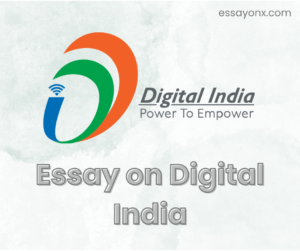Wonder of Science essay: In this essay, we’ll explore the marvels of science and the profound impact it has had on humanity.
Introduction: The Wonder of Science: Unveiling the Mysteries of Nature
Science, with its boundless curiosity and relentless pursuit of knowledge, has transformed the world in ways that were once unimaginable. From unraveling the mysteries of the universe to improving our daily lives, the wonders of science are all around us.
Understanding the Wonders of Science:
Science is not just a body of knowledge; it’s a process of inquiry, discovery, and innovation that seeks to understand the natural world and unlock its secrets. Through observation, experimentation, and analysis, scientists uncover the underlying principles that govern the universe, from the smallest subatomic particles to the vastness of space.

Advancements in Technology:
One of the most visible manifestations of the wonders of science is the rapid advancement of technology. From the invention of the wheel to the development of smartphones and the internet, technology has revolutionized the way we live, work, and communicate. Innovations in transportation, communication, healthcare, and entertainment have made our lives more convenient, connected, and comfortable than ever before.
Medical Breakthroughs:
Science has also revolutionized the field of medicine, leading to groundbreaking discoveries and advancements in healthcare. From the development of vaccines and antibiotics to the mapping of the human genome, science has played a pivotal role in combating diseases, extending lifespans, and improving quality of life. Medical technologies such as MRI scanners, pacemakers, and robotic surgery have transformed diagnosis and treatment, offering new hope to patients around the world.
Exploring the Cosmos:
The wonders of science extend far beyond our planet, reaching into the depths of space and time. Astronomy and astrophysics have unlocked the secrets of the cosmos, revealing the birth and death of stars, the formation of galaxies, and the existence of black holes. Space exploration missions, such as the Hubble Space Telescope and the Mars rovers, have provided breathtaking images and invaluable data, expanding our understanding of the universe and our place within it.
Environmental Sustainability:
In an era of growing environmental challenges, science offers hope for a sustainable future. Through research and innovation, scientists are developing alternative energy sources, improving energy efficiency, and mitigating the impacts of climate change. Advances in renewable energy, such as solar, wind, and hydroelectric power, offer cleaner and more sustainable alternatives to fossil fuels, reducing carbon emissions and preserving the planet for future generations.
Challenges and Ethical Considerations:
While the wonders of science have brought about tremendous progress and prosperity, they also present ethical and societal challenges. Issues such as genetic engineering, artificial intelligence, and biotechnology raise questions about ethics, privacy, and the responsible use of technology. As we continue to push the boundaries of scientific knowledge, it is essential to consider the potential consequences and ensure that scientific advancements benefit humanity as a whole.
Conclusion:
The wonders of science have transformed the world in profound and unprecedented ways, shaping the course of human history and opening up new possibilities for the future. From the microcosm of the atom to the vastness of the cosmos, science continues to unravel the mysteries of nature and inspire awe and wonder in the hearts of people around the world. As we stand on the threshold of a new era of scientific discovery and innovation, let us embrace the wonders of science with humility, curiosity, and a sense of responsibility, harnessing its power to create a better, brighter, and more sustainable world for generations to come.
